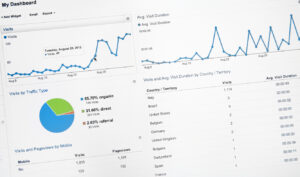How PR professionals can help with Google’s EEAT
PR has a vital role to play in SEO.

The topic of misinformation hit an all-time global high in October this year.
Google is super aware of this and recently announced a $13.2 million grant to the International Fact-Checking Network (IFCN), Google’s single largest grant in fact-checking.
Misinformation is a big problem for Google.
If Google’s search results contain rubbish, then users stop coming back. This impacts advertising revenue.
Therefore, Google has been keen to push experience, expertise, authority and trust (EEAT) as important things to consider if you want your content to rank in its index.
(The first ‘E’ experience is a new one – Google updated its guidance on December 15th – read more here – tl;dr does the author of the content you’re looking for demonstrate a suitable type/level of experience? Google uses a tax returns example, pointing out that’s a situation where you want to see content produced by an expert in the field of accounting if you’re looking for advice on completing them.)
One of the oldest EEAT signals are backlinks. Links from third party sites pointing back at the domain/page you want to rank.
Using PR to generate these signals birthed a new generation of digital PR agencies adept at using publicly available data sources to generate stories and online coverage.
However, Google has been making lots of noises in recent years about links and the number of them that you’ve got mattering a lot less than ever before. This culminated in Google’s John Mueller saying on stage at BrightonSEO in September 2022: “…over time, [LINKS] won’t be such a big factor as sometimes it is today. I think already, that’s something that’s been changing quite a bit.”
So, if links are less important, but EEAT signals are more important, then what should we be focusing on as PR pros in 2023?
Well, the good news is, Google’s dropped quite a few clues as to how EEAT can be built.
User trust and authorship
In 2019 Mueller said: “With regards to author pages and expertise, authority and trustworthiness, that’s something where I’d recommend checking that out with your users and doing maybe a short user study…trying to figure out how you can best show that the people who are creating content for your website, they’re really great people, they’re people who know what they’re talking about, they have credentials or whatever is relevant within your field.”
Takeaway: poll your client’s target audience/prospects on what they would expect to see regarding your client’s employee expertise. For example, if my client is a commercial battery manufacturer and I find out their customers expect to see chemical engineers authoring the content published on the site, then I need to make sure my client’s author profiles make it super clear who’s who, how many relevant PhDs the team has as well as how many awards it’s won.
And regarding the author profiles in particular, in a Google SEO office-hours from April 2021 Mueller advised to: “Link to a common or central place – could be a social network profile page.”
Takeaway: make a decision with your client on what central profile you’re going to consolidate author expertise signals to (e.g. LinkedIn, Twitter or profile pages on a website), and then audit and optimise that place.
Google is always trying to establish who is behind something (this is a much bigger problem if you have a common name!). =It’s called “reconciliation,” recognising which entities belong together. This is why it wants an expert to pick a single social profile and direct all EEAT signals to that.
I think LinkedIn is perfect for author reconciliation. It’s crawlable and there are loads of different ways to indicate EEAT – recommendations, qualifications, linked contacts, posts, the list goes on. And with the introduction of “experience” to the EEAT conversation, you can make a good argument that an author’s employment history could also be instrumental to assessing their EEAT credentials.
So charge your client to audit and optimise all their experts’ LinkedIn profiles and make sure the content they author on the client’s website includes links to said profiles, with structured data making it super clear which social profiles Google should associate with the author (using the sameAs Schema.org property).
Better brand search
When was the last time you did a search for your client’s brand name (using search operators to filter the results) and considered what was returned?
This is what Google wants you to do.
Check out its quality rater guidelines (in particular section 3.3.3 ‘How to Search for Reputation Information about a Website’ – I did a three-part Tiktok review on that section).
@b2bcommsman A quick refresher on Google Quality Rater Guidelines – part one #digitalPR #reputationmanagement #businessreputation #B2B ♬ original sound – b2bcommsman
It advises its Quality Raters to: “Look for reviews, references, recommendations by experts, news articles, and other credible information created/written by individuals about the website.”
This is classic PR bread and butter!
Takeaway: do a site search review of your client’s brand name. Setting aside the owned results, what’s left? Is it “very high-quality news content” that meets “professional journalistic standards”? If not, then it needs to be. Now you know what you need to do in 2023. Tip: think about paywalls – Google’s algorithms need to be able to find the brand mentions, so make sure they’re not stuck behind paywalls. Also consider the authority of the publication – at a basic level it’s much more likely a national newspaper website will appear when you search for a brand name, but it’s also important that coverage is sustained and from publications that adhere to professional journalistic standards.
All full up?
Late 2019 Google’s official search liaison Danny Sullivan said: “We do use a variety of signals as a proxy to tell if content seems to match E-A-T as humans would assess it.”
Is E-A-T a ranking factor? Not if you mean there’s some technical thing like with speed that we can measure directly.
We do use a variety of signals as a proxy to tell if content seems to match E-A-T as humans would assess it.
In that regard, yeah, it’s a ranking factor.
— Danny Sullivan (@dannysullivan) October 11, 2019
Basically, remember to think and react to your client’s online profile as a human being. Put yourself in their customers’ shoes. As Google becomes more advanced and its machine learning algorithms consume larger data sets, it becomes more important to build classic EEAT signals and much less important to chase classic ranking signals.
In 2023, read up on the quality rater guidelines cover to cover and then offer EEAT authorship reviews, EEAT search audits and owned and earned content audits. Spend time determining all of the different ways Google might try and associate my client with what is they want to sell.
Reposition your classic PR services, get your clients EEATing, use PR to boost their organic search performance, and link it to their inbound lead generation to make sure you’re as sticky as you can be in the year ahead and the importance of the reputation management work you do, is properly recognised and rewarded.
Luke Budka is director of PR and SEO at Definition.






